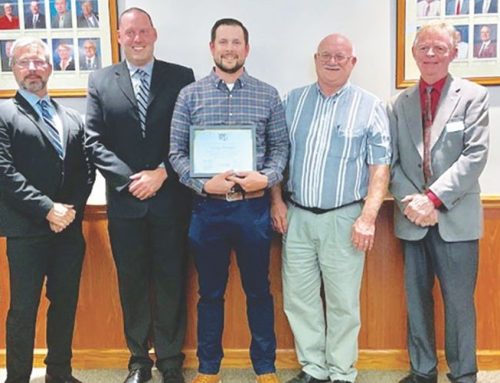Katie Hickey and Amy Russell boarded their plane toward Morocco on March 6, excited about the adventure they had been planning since last fall. When they arrived at their destination everything seemed normal but four days later, things changed quickly as the coronavirus spread outside of China and Italy.
European countries began closing their borders and the two Seaford natives left Morocco on the last flight out of the country on March 16, returning a different route by way of Canada.

Katie Hickey, left, and Amy Russell are shown in the Sahara Desert. They had dinner and spent the night in the desert. The locals played music around a campfire for everyone to enjoy before heading to bed for an early sunrise camel ride.
“Though we saw a small percentage of people wearing masks, there was nothing out of the ordinary while traveling through Europe,” Hickey said of their first few days on the trip. “By the time Sunday, March 15th rolled around, it became all of Europe [closing their borders], with Canada and many other countries to follow… Had we not changed our plans when we did, there is a high probability that we would still be in Morocco.”
“It felt like things went from fine to very much not fine practically overnight. I understand why so many people were stranded abroad,” Russell added. “We all know now that people should not travel and that everyone needs to stay home, but it’s important to remember how quickly this thing has spread. I had no idea that things would change so fast or get this bad so quickly.”
Hickey works for the city of Seaford as the Superintendent of Parks & Recreation, and Russell works for Delaware Technical & Community College in Georgetown as an Academic Support Assistant for the Language Department and the International Education Coordinator for the Owens Campus. Both are graduates of Seaford High School and the University of Delaware.
With the sudden worldwide spread of COVID-19, both women were asked a few days before coming home not to return to work immediately and the U.S. Customs told them to quarantine for 14 days. Hickey dates Russell’s brother, and they asked him to leave the house before they returned.
As they traveled, the women regularly disinfected along the way and continue to do so at home.
“There was a real spirit of sharing and kindness among the passengers because we all just wanted to get home safely,” Russell said.
The airport leaving Morocco was packed with people trying to leave before final shut down of the borders, yet all the other airports on their route home from Casablanca to Montreal to Ottawa to Dulles were mostly deserted.
“Neither of us have left the house at all during the quarantine, except to put out the trash for pickup and to get the mail,” Russell said. “We’re really careful not to come into contact with anyone. Even though neither of us had any symptoms, we were worried about passing on germs.”
Their families have dropped off groceries at their door, so they don’t need to go out. The women are working from home, using technology such as Zoom to participate in virtual meetings. Their strict quarantine time period ends March 31, at which time they’ll abide by the state of Delaware guidelines.
In spite of the coronavirus changes and the concern about getting back home, the women had a wonderful trip.
Hickey said the highlight for her was riding a camel into the Sahara Desert and spending the night out in the dunes. They also really enjoyed their walking tour in Fes with a local tour guide navigating them through the souks (shops) and showing how some of the artisans make their crafts or how some of the local food/drinks are made.
They were surprised by the hospitality they experienced. “Though there were people trying to sell you things, once we spoke with some of the shop owners, they would tell us their favorite local places to go and what to look out for while we were traveling.” Russell said.
During their conversations they learned that this was a particularly difficult time for the people in Morocco, since they were starting to feel the impacts of coronavirus on tourism.
“A lot of the places we visited were much emptier than usual. Some of the areas were clearly very dependent on tourism, like many areas here, and it’s scary to think about how bad things could get economically if the coronavirus quarantines and travel restrictions continue for a long time,” Russell added.
It is unknown when travel to Europe will be encouraged again as the world continues to watch and guard against the spread of the coronavirus.
That said, Hickey and Russell plan to continue to travel once it is appropriate and recommend checking the CDC website for instructions to take seriously.
Hickey’s advice, “With the exception to the current travel restrictions, travel as often as you can! There is much more beauty in the unknown than anyone can ever imagine.”





